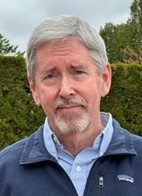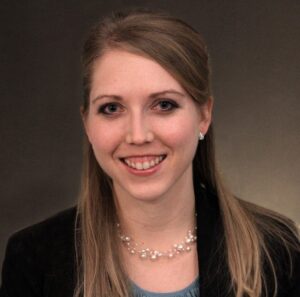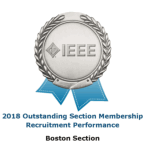IEEE Boston Section
News & Announcements!
IEEE Boston Section – Call for Committee Volunteers!
Upcoming Events!
- Categories
- Tags -Courses Fall 2015 -Courses-Fall-14 -Courses-Spring-15 Aerospace & Electronic Systems Antennas & Propagation Communications Computational Intelligence Computer con Consultants' Network Consumer Electronics Control Systems Courses - Spring 2016 Education el Electromagnetic Compatibility Electron Devices engineering Engineering in Medicine and Biology Societies Entrepreneurs' Network Geo-Science & Remote Sensing Industry Applications Society Life Members Magnetics Member Development Membership Development Microsystems Microwave Theory and Techniques Nuclear & Plasma Sciences PACE Photonics Power Electronics Power Energy Society re Reliability Robotics and Automation sensors council sig Signal Processing Society for Social Implications of Technology Solid State Circuits technology & management tem Women in Engineering Young Professionals
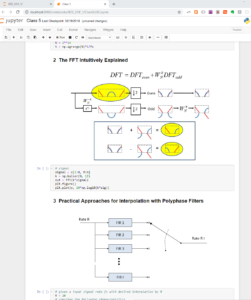 This long-running IEEE Course has been updated to include Jupyter Notebooks which incorporates graphics together with Python simulation code to provide a “take-it-with-you” interactive user experience. No knowledge of Python is required but the notebooks will provide a basic framework for proceeding with further signal processing development using that tools for those that have interest in doing so. This course will not be teaching Python, but using it for demonstration. A more detailed course on Python itself is covered in a separate IEEE Course “Python Applications for Digital Design and Signal Processing”. Students will be encouraged but not required to load all the Python tools needed, and all set-up information for installation will be provided prior to the start of class. Target Audience: All engineers involved in or interested in signal processing applications. Engineers with significant experience with DSP will also appreciate this opportunity for an in-depth review of the fundamental DSP concepts from a different perspective than that given in a traditional introductory DSP course. Benefits of Attending/ Goals of Course: Attendees will build a stronger intuitive understanding of the fundamental signal processing concepts involved with digital filtering and mixed signal analog and digital design. With this, attendees will be able to implement more creative and efficient signal processing architectures in both the analog and digital domains. The knowledge gained from this course will have immediate practical value for any work in the signal processing field. Topics / Schedule: Pre-recorded lectures: (3 hours each) will be distributed Friday prior to each week’s workshop dates. Workshop/Q&A Sessions are 6 – 7:30PM on the dates listed below. Kick-off / Orientation: Thursday, April 18, 2024 Class 1: April 25, 2024: Correlation, Fourier Transform, Laplace Transform Class 2: May 2, 2024: Sampling and A/D Conversion, Z –transform, D/A Conversion Class 3: May 9, 2024: IIR and FIR Digital filters, Direct Fourier Transform Class 4: May 16, 2024: May Windowing, Digital Filter Design, Fixed Point vs Floating Point Class 5: May23, 2024: Fast Fourier Transform, Multi-rate Signal Processing, Multi-rate Filters
This long-running IEEE Course has been updated to include Jupyter Notebooks which incorporates graphics together with Python simulation code to provide a “take-it-with-you” interactive user experience. No knowledge of Python is required but the notebooks will provide a basic framework for proceeding with further signal processing development using that tools for those that have interest in doing so. This course will not be teaching Python, but using it for demonstration. A more detailed course on Python itself is covered in a separate IEEE Course “Python Applications for Digital Design and Signal Processing”. Students will be encouraged but not required to load all the Python tools needed, and all set-up information for installation will be provided prior to the start of class. Target Audience: All engineers involved in or interested in signal processing applications. Engineers with significant experience with DSP will also appreciate this opportunity for an in-depth review of the fundamental DSP concepts from a different perspective than that given in a traditional introductory DSP course. Benefits of Attending/ Goals of Course: Attendees will build a stronger intuitive understanding of the fundamental signal processing concepts involved with digital filtering and mixed signal analog and digital design. With this, attendees will be able to implement more creative and efficient signal processing architectures in both the analog and digital domains. The knowledge gained from this course will have immediate practical value for any work in the signal processing field. Topics / Schedule: Pre-recorded lectures: (3 hours each) will be distributed Friday prior to each week’s workshop dates. Workshop/Q&A Sessions are 6 – 7:30PM on the dates listed below. Kick-off / Orientation: Thursday, April 18, 2024 Class 1: April 25, 2024: Correlation, Fourier Transform, Laplace Transform Class 2: May 2, 2024: Sampling and A/D Conversion, Z –transform, D/A Conversion Class 3: May 9, 2024: IIR and FIR Digital filters, Direct Fourier Transform Class 4: May 16, 2024: May Windowing, Digital Filter Design, Fixed Point vs Floating Point Class 5: May23, 2024: Fast Fourier Transform, Multi-rate Signal Processing, Multi-rate Filters 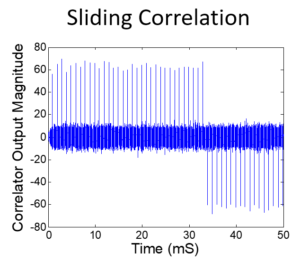
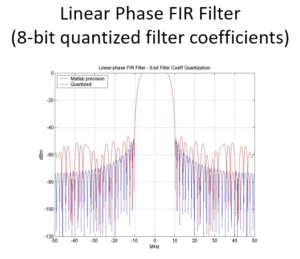
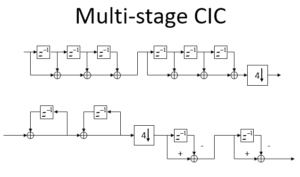 Speaker’s Bio: Dan Boschen has a MS in Communications and Signal Processing from Northeastern University, with over 25 years of experience in system and hardware design for radio transceivers and modems. He has held various positions at Signal Technologies, MITRE, Airvana and Hittite Microwave designing and developing transceiver hardware from baseband to antenna for wireless communications systems. Dan is currently at Microchip (formerly Microsemi and Symmetricom) leading design efforts for advanced frequency and time solutions. For more background information, please view Dan’s Linked-In page at: http://www.linkedin.com/in/danboschen Registration is open through the last live workshop date. Live workshops are recorded for later use.
Speaker’s Bio: Dan Boschen has a MS in Communications and Signal Processing from Northeastern University, with over 25 years of experience in system and hardware design for radio transceivers and modems. He has held various positions at Signal Technologies, MITRE, Airvana and Hittite Microwave designing and developing transceiver hardware from baseband to antenna for wireless communications systems. Dan is currently at Microchip (formerly Microsemi and Symmetricom) leading design efforts for advanced frequency and time solutions. For more background information, please view Dan’s Linked-In page at: http://www.linkedin.com/in/danboschen Registration is open through the last live workshop date. Live workshops are recorded for later use. Entrepreneurs’ Network
Attendees will have the option to join us in-person or online via Zoom.
The meeting description will be posted soon!
A question-and-answer session will follow the panel discussion, and the panelists will be available afterward for responses to individual questions.
(All times are USA Eastern time, webinars will not be recorded, except that ENET members can review a recording of this webinar after the meeting.)
More information:
This is a hybrid event. You may choose to participate in-person or online.
In-person Participation (check-in begins at 6:00 PM):
LOCATION: Location to be determined
REFRESHMENTS: Pizza and soft drinks will be served.
Online Participation:
Zoom links will be sent to all registrants after registration.
Cost and Reservations: This event is free for ENET members and $15 for non-members. Click here to learn how to become a member. To expedite sign-in for the event, we ask that everyone — members as well as non-members — pre-register. If you cannot pre-register, you are welcome to register in person at the door while seats are available.
Registration: https://bostonenet.org/events/partnerships-and-joint-ventures/
Electromagnetic Compatibility Society 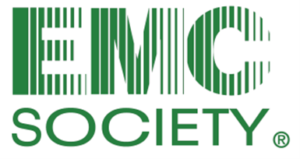
Keith Frazier, Ford Motor Company
Hosted at: TÜV Rheinland North America, Technology and Innovation Center
Sponsored by Silent Solutions, LLC http://www.silent-solutions.com/
The technical presentation will commence at 7:00PM following a social hour at 6:00 PM. Food and refreshments are provided.
6:00 pm: Registration/check-in, complimentary food and refreshments
6:50 pm: Welcome from TÜV Rheinland North America and IEEE EMC Boston Chapter
7:00 pm: Presentation by Keith Frazier, Ford Motor Company (abstract and bio below)
7:45 pm: Q&A
8:00 pm: Optional tour of the new TUV facility
Parking: Complimentary parking is available
Register: Click here to register online: https://events.vtools.ieee.org/event/register/417496
Please register no later than May 15 in order to ensure adequate seating & catering.
Thank you to our meeting host TUV and sponsor – Silent Solutions!
Technical Presentation
RF radiated emissions from Electric Vehicles – Regulatory challenges.
By Keith Frazier, Senior Technical Leader of Electromagnetic Compatibility, Ford Motor Company
Abstract: Unlike internal combustion engines, electric powertrain in automotive applications pose much greater challenges in meeting regulatory requirements with respect to far field radiated RF emissions. This talk will review the basic physical mechanisms of the EV powertrain that contribute toward RF emissions from the vehicle. Various mitigation techniques are summarized along with the engineering tradeoffs they create. Current and future regulatory requirements are also reviewed.
About the Speaker
Keith Frazier, Senior Technical Leader of Electromagnetic Compatibility, Ford Motor Company, is responsible for oversite of all EMC design of Ford automotive products worldwide. His interests include system/subsystem design and analysis for EMC. Between receiving his BSEE from Purdue University in 1976 and joining Ford in 1990, Keith served as an EMC and TEMPEST design engineer for various automotive and aerospace firms including GM, Lockheed and Magnavox Government Electronics.
He is a Life Senior member of IEEE and has authored and presented over 12 technical papers and presentations at regional and international symposia. Keith has authored and co-authored multiple SAE and ISO immunity standards as an active member of the USTAG to CISPR D and ISO international standards committees.
In 2008, Keith served as Technical Papers Co-chair for the 2008 IEEE EMC Symposium held in Detroit Michigan. In the fall of 2023, he was elected as member at large of the EMC Society’s Board of Governors.
Directions:
TUV Rheinland Technology and Innovation Center; 400 Beaver Brook Road, Boxborough, MA 01719
https://maps.app.goo.gl/JskKZrYbDBkQRDpeA
In case of questions regarding location, please contact:
Robert Mitchell
EMC & Envir. Servs Segment Mgr-America
rmitchell@us.tuv.com
COURSE DESCRIPTION
Course Kick-off / Orientation Thursday, April 18, 6:00PM – 6:30PM.
Live Workshops: 6:00PM – 7:30PM, Thursdays, April 25, May 2, 9, 16, 23
Registration is open through the last live workshop date. Live workshops are recorded for later use.
Attendees will have access to the recorded session and exercises for two months (until July 23, 2024) after the live session ends!
Speaker: Dan Boschen
IEEE Member Fee (by April 11th): $190.00
IEEE Member Fee (after April 11th): $285.00
IEEE Non-Member Fee (by April 11th): $210.00
IEEE Non-Member Fee (after April 11th) $315.00
Decision to run/cancel course: Friday, April 12, 2024
COURSE DESCRIPTION
New Format Combining Live Workshops with Pre-recorded Video
This is a hands-on course providing pre-recorded lectures that students can watch on their own schedule and an unlimited number of times prior to live Q&A/Workshop sessions with the instructor. Ten 1.5 hour videos released 2 per week while the course is in session will be available for up to two months after the conclusion of the course.
Course Summary
This course is a fresh view of the fundamental and practical concepts of digital signal processing applicable to the design of mixed signal design with A/D conversion, digital filters, operations with the FFT, and multi-rate signal processing. This course will build an intuitive understanding of the underlying mathematics through the use of graphics, visual demonstrations, and applications in GPS and mixed signal (analog/digital) modern transceivers. This course is applicable to DSP algorithm development with a focus on meeting practical hardware development challenges in both the analog and digital domains, and not a tutorial on working with specific DSP processor hardware.
Now with Jupyter Notebooks!
This long-running IEEE Course has been updated to include Jupyter Notebooks which incorporates graphics together with Python simulation code to provide a “take-it-with-you” interactive user experience. No knowledge of Python is required but the notebooks will provide a basic framework for proceeding with further signal processing development using that tools for those that have interest in doing so.
This course will not be teaching Python, but using it for demonstration. A more detailed course on Python itself is covered in a separate IEEE Course “Python Applications for Digital Design and Signal Processing”.
Students will be encouraged but not required to load all the Python tools needed, and all set-up information for installation will be provided prior to the start of class.
Target Audience:
All engineers involved in or interested in signal processing applications. Engineers with significant experience with DSP will also appreciate this opportunity for an in-depth review of the fundamental DSP concepts from a different perspective than that given in a traditional introductory DSP course.
Benefits of Attending/ Goals of Course:
Attendees will build a stronger intuitive understanding of the fundamental signal processing concepts involved with digital filtering and mixed signal analog and digital design. With this, attendees will be able to implement more creative and efficient signal processing architectures in both the analog and digital domains. The knowledge gained from this course will have immediate practical value for any work in the signal processing field.
Topics / Schedule:
Pre-recorded lectures: (3 hours each) will be distributed Friday prior to each week’s workshop dates. Workshop/Q&A Sessions are 6 – 7:30PM on the dates listed below.
Kick-off / Orientation: Thursday, April 18, 2024
Class 1: April 25, 2024: Correlation, Fourier Transform, Laplace Transform
Class 2: May 2, 2024: Sampling and A/D Conversion, Z –transform, D/A Conversion
Class 3: May 9, 2024: IIR and FIR Digital filters, Direct Fourier Transform
Class 4: May 16, 2024: May Windowing, Digital Filter Design, Fixed Point vs Floating Point
Class 5: May23, 2024: Fast Fourier Transform, Multi-rate Signal Processing, Multi-rate Filters
Speaker’s Bio:
Dan Boschen has a MS in Communications and Signal Processing from Northeastern University, with over 25 years of experience in system and hardware design for radio transceivers and modems. He has held various positions at Signal Technologies, MITRE, Airvana and Hittite Microwave designing and developing transceiver hardware from baseband to antenna for wireless communications systems. Dan is currently at Microchip (formerly Microsemi and Symmetricom) leading design efforts for advanced frequency and time solutions.
For more background information, please view Dan’s Linked-In page at: http://www.linkedin.com/in/danboschen
Registration is open through the last live workshop date. Live workshops are recorded for later use.
Antennas & Propagation Society
Zoom link will be sent to registrants before the event.
Next-generation wireless RF systems are expected to contain multi-functional, highly flexible, and tightly integrated front-ends for achieving agile use of the frequency spectrum. In the past decade, this has led to research on filtering antennas, or filtennas, in which the functionality of the antenna and filter is combined into a single highly integrated module that achieves the function of both components with a higher-order transfer function. These filtennas can have improved performance, size, and cost. Furthermore, by incorporating frequency-agility, a filtenna can provide adaptation to changing radio environments. One of the challenges in realizing a reconfigurable filtenna is that two dissimilar elements need to be tuned in tandem.
This presentation covers recent developments in the design of reconfigurable filtennas in the S-band (2-4 GHz) and X-band (8-12 GHz). The filtennas are based on using evanescent-mode cavities as the backing for slot antennas. A discussion of available tuning mechanisms and the challenges of going from S-band to X-band is included. Second-order reconfigurable filtenna proof-of-concept prototypes are shown in both frequency bands. The prototype filtennas are created using commercially available printed circuit board materials and tuning elements and measured in an anechoic chamber. The S-band filtenna can continuously tune from 2 to 2.6 GHz while achieving a realized gain between 2.7 to 5.2 dB, respectively. The X-band filtenna demonstrates tuning from 9.6 to 11.1 GHz, with a maximum gain of 5 dB. Overall, with the demonstrated performance, these elements are promising components for future wireless communications and radar systems.
Biography:
Jessica E. Ruyle (M’05–SM’16) was born in Shawnee, OK USA in 1984. She received a B.S. degree in electrical engineering from Texas A&M University, College Station in 2006 and an M.S and Ph.D. degree in electrical engineering from the University of Illinois at Urbana-Champaign in 2008 and 2011 respectively.
From 2006 to 2011, she was a Graduate Research Assistant at the University of Illinois at Urbana-Champaign. From 2012 to 2019, she was an Assistant Professor with the School of Electrical and Computer Engineering, University of Oklahoma, Norman. In 2019 she was promoted to Associate Professor in Electrical and Computer Engineering at the University of Oklahoma. She is an Advanced Radar Research Center (ARRC) member at the University of Oklahoma (OU). She holds two patents for her antenna designs. Her research interests are in the development and characterization of new electromagnetic devices and platforms such as antennas and packaging to improve the performance of radiating systems in challenging environments.
Prof. Ruyle is a member of Tau Beta Pi and Eta Kappa Nu. She is the recipient of a DARPA Young Faculty Award for her work in highly conformal, placement insensitive antennas and was named a William H. Barkow Presidential Professor at OU. She is also an IEEE Senior Member and an Associate Editor for IEEE Antennas and Wireless Propagation Letters.
IEEE Boston Section recognized for Excellence in Membership Recruitment Performance
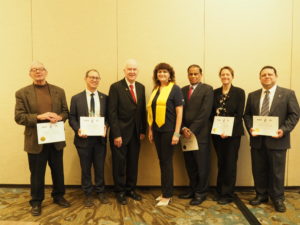
IEEE Boston Section was founded Feb 13, 1903, and serves more than 8,500 members of the IEEE. There are 29 chapters and affinity groups covering topics of interest from Aerospace & Electronic Systems, to Entrepreneur Network to Women in Engineering to Young Professionals. The chapters and affinity groups organize more than 100 meetings a year. In addition to the IEEE organization activities, the Boston Section organizes and sponsors up to seven conferences in any given year, as well as more than 45 short courses. The Boston Section publishes a bi-weekly newsletter and, currently, a monthly Digital Reflector newspaper included in IEEE membership.
The IEEE Boston Section also offers social programs such as the section annual meeting, Milestone events, and other non-technical professional activities to round out the local events. The Section also hosts one of the largest and longest running entrepreneurial support groups in IEEE.
More than 150 volunteers help create and coordinate events throughout the year.


